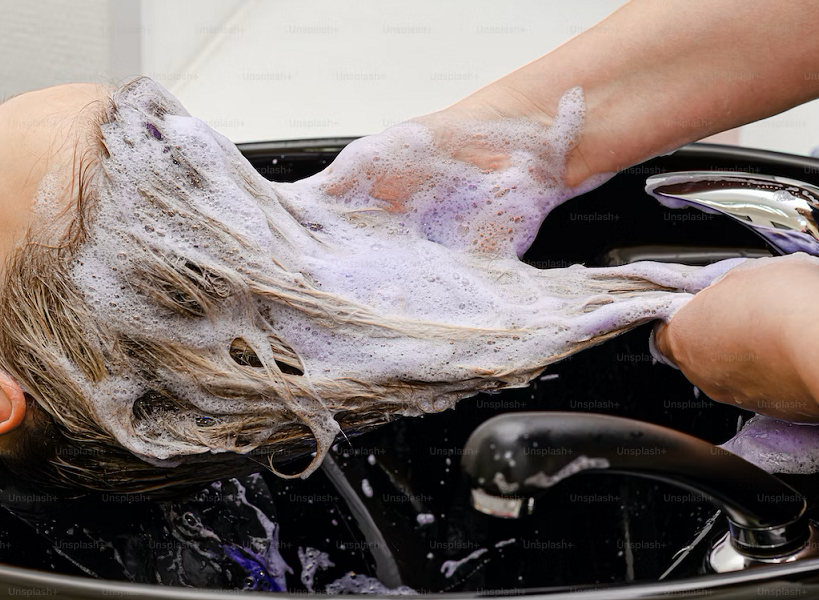Are Shampoo Bars Good for Hair? Pros, Cons, and Tips
As a beautician, you may often find yourself addressing various questions about trending hair care products. One product that has piqued the interest of customers worldwide is the shampoo bar. A subject of curiosity and skepticism alike, many beauty professionals ponder, 'Are shampoo bars good for hair?' Understanding the nuances of this eco-friendly alternative can position you to provide well-informed advice to your clients.
In this article, well deep dive into the science behind shampoo bars, their benefits, potential drawbacks, and the crucial factors to consider when recommending them. Additionally, we'll explore how these solid shampoos stack up against conventional liquid shampoos in terms of performance and sustainability.

The Rise of Shampoo Bars in the Beauty World
Shampoo bars have taken the beauty industry by storm, thanks to their environmentally conscious framework. Plastic-free and travel-friendly, these compact alternatives to liquid shampoos are undeniably attractive. According to the Nordstrom blog on shampoos, shampoo bars cater to the rising demand for greener, chemical-conscious products in the hair care sector.
Why Are Shampoo Bars Popular with Beauticians?
Minimal ingredient formulations often make shampoo bars appealing to professionals who advocate less chemical-laden products. They are also highly customizable, available in formulations for dry, oily, curly, and even color-treated hair. As highlighted in the hair-care guide by L Salon, knowing your hair type is pivotal to choosing any shampoo, including bars.
Are Shampoo Bars Effective for Hair Care?
When addressing whether shampoo bars are good for hair, its important to evaluate their functional attributes:
Advantages of Shampoo Bars
- Eco-friendly: Unlike liquid shampoos, shampoo bars require minimal or no plastic packaging, significantly reducing environmental waste.
- Compact and Travel-friendly: Their solid form makes them ideal for travel, bypassing the hassle of liquid restrictions on flights.
- Natural Ingredients: These bars often feature botanical oils, essential oils, and other natural elements, making them less harsh on the scalp and hair.
To delve more into sustainable product choices, you might find this guide on choosing hair care products insightful.
Potential Drawbacks to Watch For
While shampoo bars have their benefits, they also come with certain limitations:
- Residue buildup: Many shampoo bars use natural fats and oils, which may lead to residue buildup, especially in hard water conditions.
- Adjustment Period: Transitioning to shampoo bars may require an adjustment period where hair feels greasy or heavy.
- Storage Issues: Proper storage is crucial to prevent the bars from becoming mushy or melting between washes.
Providing client education on correct usage can mitigate most of these challenges. Refer them to blogs like this one about shampoo usage to help enhance their understanding.
Best Practices for Incorporating Shampoo Bars into Haircare Routines
Here are some expert tips for beauticians:
- Hair Type Matters: Recommending a bar that aligns with the clients hair type ensures better results.
- Proper Lathering Technique: Directly rubbing the bar on the scalp may not be effective for everyone. Instead, encourage creating a lather in their hands first.
- Conditioner Bars: Pairing with a conditioner bar can enhance manageability and hydration.
Conclusion
The question, 'Are shampoo bars good for hair?' ultimately depends on individual hair needs and how the bar is integrated into ones routine. By understanding the benefits and challenges of shampoo bars, beauticians can better guide their clients towards greener and potentially healthier hair care options.

FAQs About Shampoo Bars
- 1. Do shampoo bars work for all hair types? Yes, but choosing the right formulation for your hair type is vital.
- 2. How should I store shampoo bars? Use a soap dish or container that allows drainage to keep the bar dry.
- 3. Are shampoo bars sulfate-free? Many are, but always check the ingredient list to confirm.
This article contains affiliate links. We may earn a commission at no extra cost to you.
